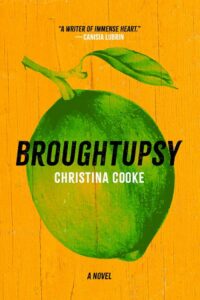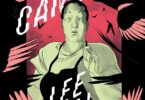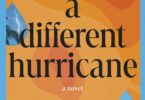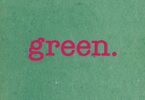Christina Cooke, Broughtupsy (House of Anansi Press, 2024), 240 pp., $22.99.
Born in Jamaica, Christina Cooke is now a Canadian citizen living in New York City. Broughtupsy, her debut novel, is both a gritty, queer coming-of-age tale and a nuanced dissection of grief, identity, and language. Set in Vancouver and Jamaica in 1996, it is narrated in the first person by Akúa, a twenty-year old Jamaican Canadian lesbian. After her little brother, Bryson, dies of a form of inherited sickle-cell disease, like the one that killed her mother ten years earlier, Akúa breaks up with her long-term girlfriend and travels to Jamaica with her brother’s ashes in tow.
In Jamaican Patois, “broughtupsy” refers to one’s upbringing. Specifically, it is used to refer to good manners and being raised correctly. Cooke’s novel is a story of grief, but it is also about the liminal space between adolescence and true adulthood. As Akúa searches for her past and a new connection with her sister in Kingston, she leaves behind her idealized childhood memories and comes to understand more about her position in the world.
Though she was born and raised in Jamaica, the island is no longer familiar to Akúa. Her accent betrays her teenage years spent in North America, an upbringing that places her outside the culture she grew up in. In the taxi from the airport, Akúa is self-conscious of her accent and inability to follow the rapid Patois of the other women. When she speaks, she observes that “[t]he woman with her elbow in my side watches me from the corner of her eye, the conversation lowering to a hush. I’ve outed myself, my voice betraying a foreign lilt” (33). Though she grew up in Kingston, and holds a Jamaican passport, the moment prompts Akúa to question her identity: “Am I Jamaican?” (33)
Akúa has also come to Jamaica to reconnect with her estranged sister, Tamika. However, their reunion is not what Akúa hopes for. Her sister is distant, almost cold, and Akúa finds it hard to reconcile the idealized memory of the teenage Tamika with the grown woman before her.
Cooke develops the complex relationship between the sisters through carefully crafted dialogue in which what is not said becomes almost as important as what is. Unanswered questions and repetition emphasize the disconnect between the women. Akúa’s limited insight into her sister’s experiences and feelings means the reader is only able to build a picture of Tamika through their conversation and interactions, but Tamika is evasive when it comes to talking about Bryson, or why she chose to go back to Jamaica rather than staying with her father and siblings in Texas:
“Why?” I say again.
“Why are you here?” she says, staring straight ahead. “Why now?”
“Because our brother—”
She laughs. “Stop it,” she says. “Stop lying in our brother’s name. Why did you come?” (45-46)
Tamika meets her sister’s questions with questions of her own; the repetition of “why?” accentuating the distance between the sisters. Tamika’s true thoughts and feelings remain as much a mystery to the reader as they are to Akúa, but her return of her little sister’s question suggests the possibility that she feels as disconnected from Akúa as Akúa does from her.
In her grief and loneliness, Akúa seeks to re-root herself, and Bryson, in the land of their birth by smearing his ashes in locations around the city: their mother’s grave site, the beach, a strip club where Akúa’s new lover works. During a visit to her childhood house, she “smear[s] him onto the pipe, against the wall, into the grass and dirt” (58). As she returns Bryson to Kingston, she returns to her own faded memories of her mother and sister, searching for a way to link the past and present.
It is because Akúa does not know truly know Jamaica as an insider that she does not see the danger that it poses for her as a queer woman. Even though she understands that the culture on the island is more conservative and patriarchal than what she is used to in Canada and the US, Akúa does not see the potentially violent repercussions to being seen as “strange.”
Tamika warns Akúa early on that openly being a lesbian could have consequences, but Akúa (and, by extension, the reader) dismiss her words as the hurtful byproduct of her own prejudice:
“They will laugh at you and spit in your face,” Tamika says. “Are you listening? They will stone you. They will bring their machetes and guns. Listen to me, mi seh! They will butcher you in broad daylight then leave you to rot. And the police will pay you no mind.”
Taking a deep breath, I crack my knuckles to make myself calm. It’s okay. She doesn’t know any better.” (61)
Tamika does seem to have her share of internalized homophobia—her longing looks at a pretty soprano in her church hint she may have her own hidden queer desires—but her words are also a warning born of genuine concern for her sister. In many ways, it is Akúa who “doesn’t know any better.” Tamika fears Akúa’s time in North America will lead her to take dangerous risks. When Akúa is caught kissing her lover, Jayda, at the strip club, she initially fails to recognize her mistake. Naively, she thinks there won’t be any repercussions because she is well-liked by the bartender who discovered them. As Tamika foretold, Akúa is thinking like a foreigner, imagining that the rules of her life in North America will apply here as well.
At points, Cooke’s writing appears almost deceptively simple—but generous use of alliteration lends a musicality and rhythm to her prose. For example, describing Akúa’s actions one evening in a series of short lines, Cooke writes: “I sweep the kitchen floor. I straighten out shoes. I sit on the couch in the dark” (170). The repetition of the “s” at the beginning of each verb softens the transition between sentences and is echoed later, at the end of the paragraph, when Akúa “grab[s] the phone from its hook, cord uncurling in soft snaps” (170). Here, the harshness of the ‘c’ in “cord uncurling” contrasts with the gentleness of the ‘s’ in “soft snaps,” a sonic dissonance that mirrors the restlessness and hope Akúa feels as she calls Jayda on a lonely night.
Cooke’s lush prose is poetic, but clear and restrained enough to maintain the momentum of the main plot, which moves along at a refreshingly brisk pace. The transitions between intense memories and the present storyline feel natural, like a logical extension of Akúa’s grief and isolation.
For all its emotional weight, Broughtupsy refuses to settle for easy answers. As she navigates her brother’s death and reuniting with her sister in Kingston, Akúa weaves her way through her past and her present. In both, she learns hard truths about what it means to exist in the spaces outside and in-between the norms of gender, sexuality, culture, and language.
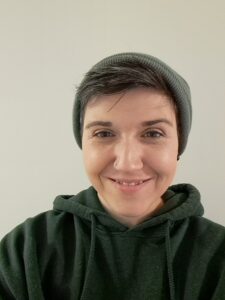 Shannon Page (they/them) is a writer, film critic, and educator living on the unceded territory of the Musqueam, Squamish, and Tsleil-Waututh peoples. Their writing has appeared in Plenitude Magazine, THIS Magazine, Grain, Foglifter, and elsewhere.
Shannon Page (they/them) is a writer, film critic, and educator living on the unceded territory of the Musqueam, Squamish, and Tsleil-Waututh peoples. Their writing has appeared in Plenitude Magazine, THIS Magazine, Grain, Foglifter, and elsewhere.

